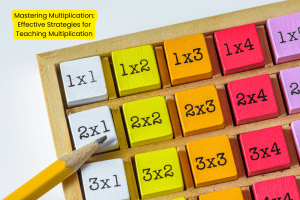
Part of me wants to say you don’t have to make mathematics fun, because it already is. Or rather, it can be fun. It can also be frustrating, illuminating, elegant, baffling, challenging, and addictive. The question probably needs to be “how do you make SCHOOL math(s) fun?” Or possibly, “how do you make school math(s) meaningful and motivated?” And a typical answer to that is you make it more like real mathematics.
But I’m not sure that’s sufficient as an answer. It’s feeling like there’s something new that’s happening in mathematics education, and it has to do with crafting experiences that are more likely to be engaging, more likely to be playful, and more likely to be social. Even if these existed occasionally, making them more ubiquitous actually changes how people experience the subject.
When people are young (say, 2 – 8), mathematics tends to be a source of joy. Kids seem to be drawn to ideas about number, shape, pattern, and structure in a similar way they are drawn to language. They learn through experimentation, play, and repetition, and the exposure to mathematical ideas is fundamentally empowering. I think we need to create frameworks that imitate how young kids are drawn into mathematical thinking. Mine looks like this:
- Spark their curiosity. Get them engaged in an irresistible mystery. This means letting questions hang in the air without answers.
- Support their productive struggle. People learn by trying to make sense of things that aren’t obvious. This can be frustrating, but we need to let the struggle belong to the student. If we take it from them, we take satisfaction and joy as well.
- Let students own the experience. A chance to reflect or share can let students see what they’ve done, and how far they’ve come. If we’re just concerned about them having the right answer, we communicate that their understanding and ownership isn’t what’s important. So we really have to give them space to take ownership of the process and the ideas that come from it.
One very important thing to note is that play supports all of this. For mathematics, play is the engine of learning. When you’re in a playful state, you’re more likely to be open to curiosity, more likely to struggle, and more likely to feel a sense of ownership.
So for parents as well as teachers, and especially for primary grades, I’d say the most vital advice is to play with mathematics. Playing games is great. Playing with blocks is crucial, especially for young children, since there’s a physical intuition that gets built that ends up providing fundamental analogies for mathematics. Just living with questions and providing a space for questions to live is very powerful.
The second thing I’d suggest is to change your fundamental question from “do you know the answer?” to “how are you thinking about this?” Worry less if your kid has reached whatever bar you think they need to reach. Instead, let yourself be curious about what’s actually happening in their mind. Mathematics has been called supercharged common sense. If we teach people to ignore their intuition and follow nonsensical steps to arrive at answers, we’re doing a deep disservice to them, and damaging their foundation for mathematical thinking long term. Don’t be answer-driven. Be sense-driven.
Will all this make mathematics fun? Sometimes it will. But hopefully the real shift is in letting mathematics be playful, challenging, empowering, meaningful, and motivated.






